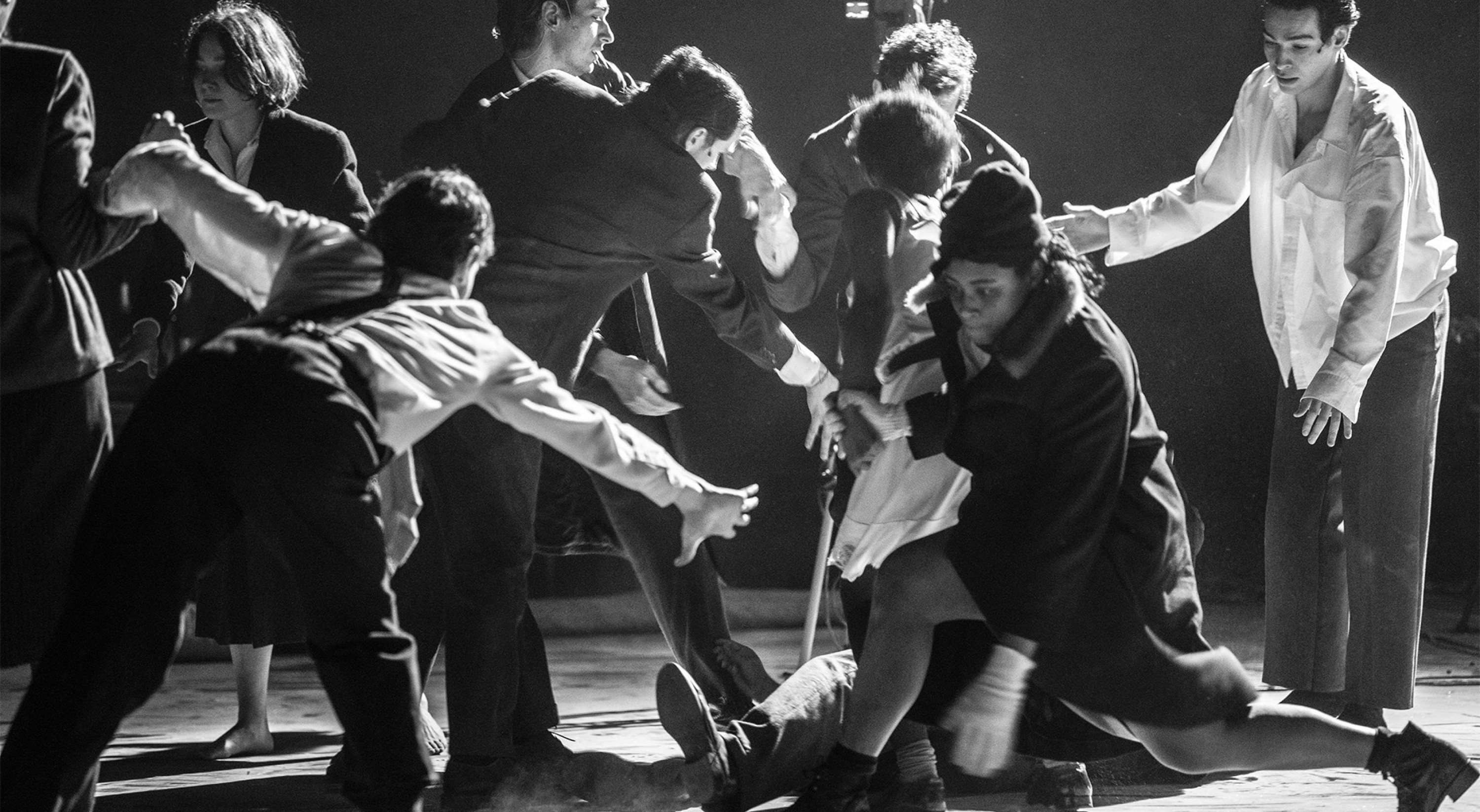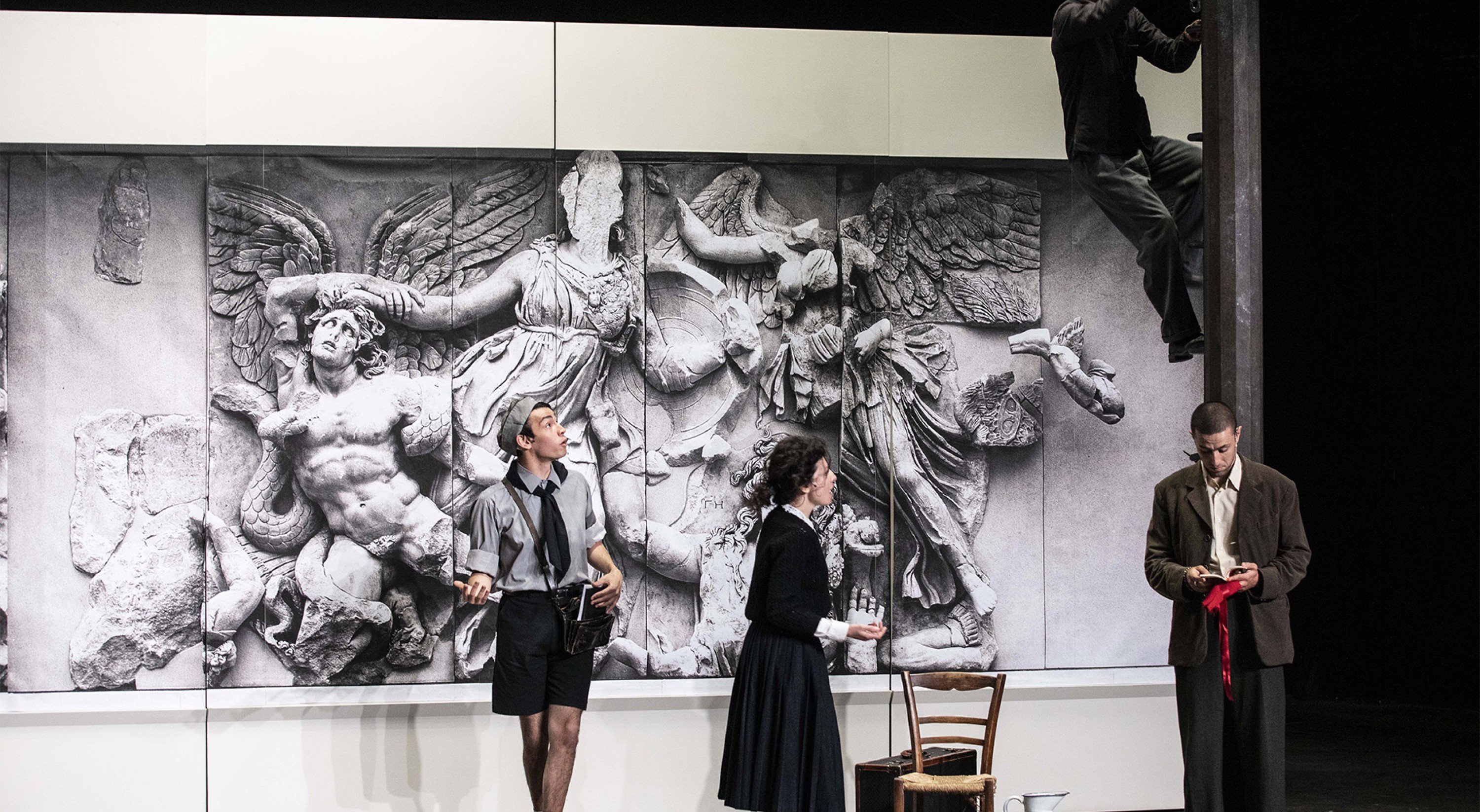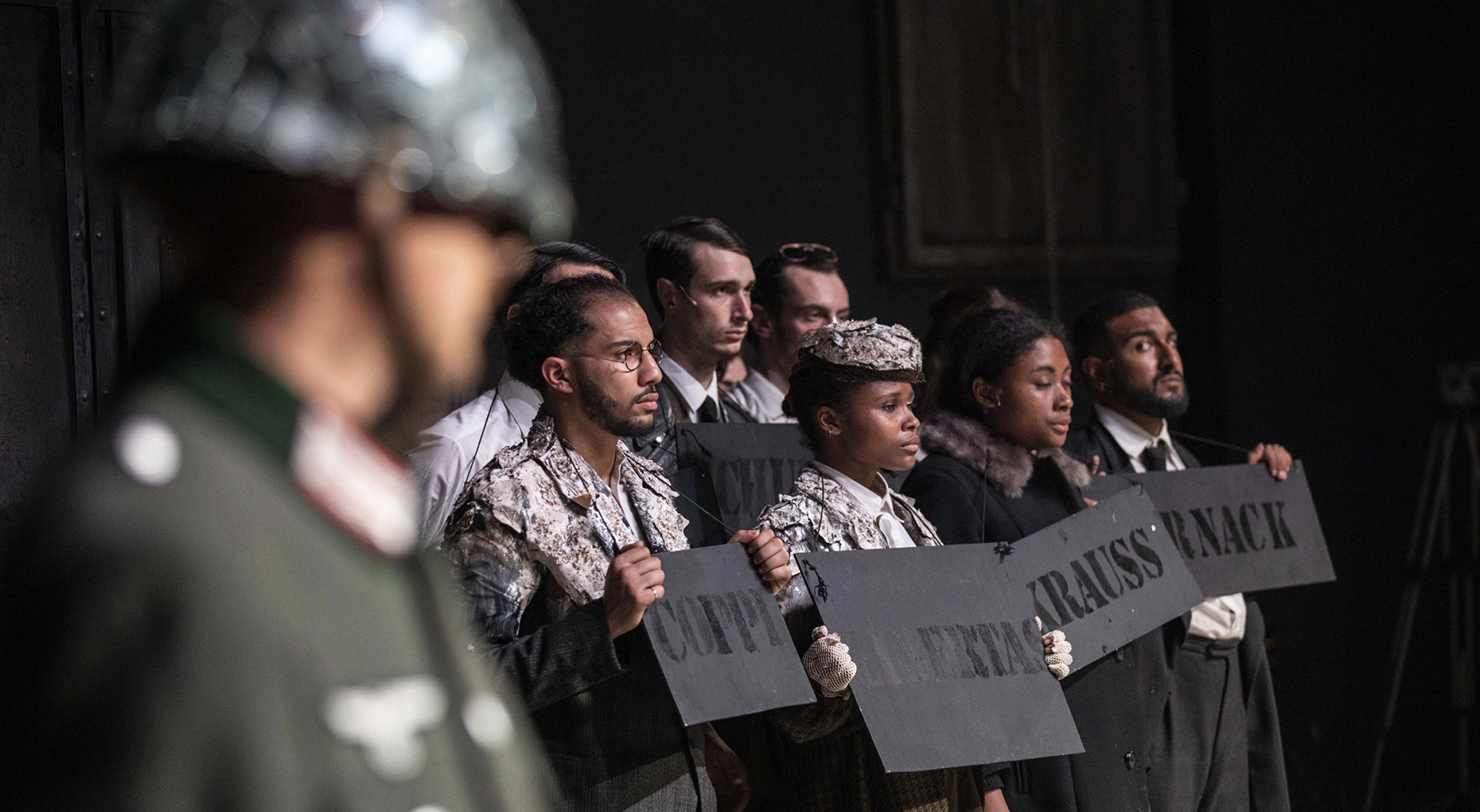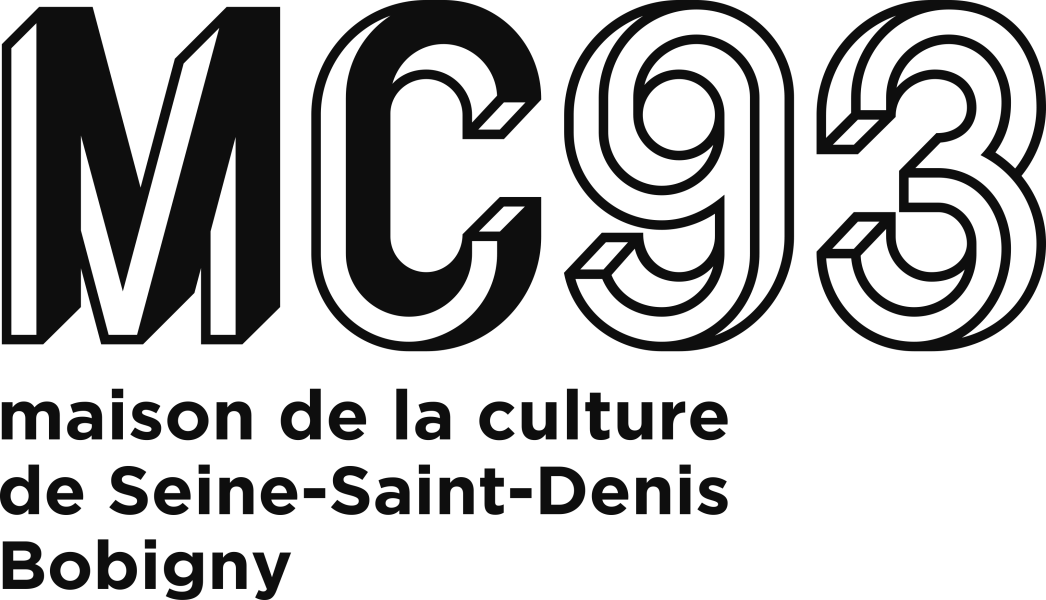Sylvain Creuzevault
L’Esthétique de la résistance
novembernov 9 – 12
Based on the novel by Peter Weiss
Adapted and directed by Sylvain Creuzevault
Performers - Groupe 47 de l'École du TNS, Jonathan Bénéteau de la Prairie, Juliette Bialek, Yanis Bouferrache, Gabriel Dahmani, Hameza El Omari, Jade Emmanuel, Felipe Fonseca Nobre, Charlotte Issaly, Vincent Pacaud, Naïsha Randrianasolo, Lucie Rouxel, Thomas Stachorsky, Manon Xardel and Boutaïna El Fekkak, Vladislav Galard, Arthur Igual, Frédéric Noaille
Set design, Loïse Beauseigneur, Valentine Lê
Costumes, Jeanne Daniel-Nguyen, Sarah Barzic
Lighting, Charlotte Moussié
Sound, Loïc Waridel
Video, Simon Anquetil
Assistant director, Ivan Marquez
Dramaturgy, Julien Vella
Musical composition, Pierre-Yves Macé
Make-up and hair, Mityl Brimeur
Stage Control, Léa Bonhomme
Stage Manager, Arthur Mandô
Produced by Théâtre National de Strasbourg
Coproduced by Compagnie Le Singe
Delegated production Compagnie Le Singe
L'Esthétique de la résistance is published by Klincksieck (2017), translation by E. Kaufholz.
Peter Weiss is represented by l'Arche - agence théâtrale
The MC93 - Maison de la Culture de Seine-Saint-Denis and the Festival d'Automne à Paris are co-producing this performance.
In L’Esthétique de la résistance by Peter Weiss, a landmark novel of the XXth century, Sylvain Creuzevault continues to probe, onstage, the workings of the history of political struggles, and the capacity of human beings, and the works they create, to resist.
After the last fifteen years spent digging deep into the XIXth century and the work of Dostoevsky, Sylvain Creuzevault continues, in the XXth century, with an unrelenting excavation of a very specific history of socialism and social struggles – and with it, the theatrical potential of monuments of literature. With L’Esthétique de la résistance by the German author, Peter Weiss, published in three volumes between 1971 and 1981, Sylvain Creuzevault tackles a new world-novel, a testamentary masterpiece that has been compared to Proust and Walter Benjamin. It details a collective (and melancholic) history of resistance to fascism and German workers' struggles, via the itinerancy, from 1937 to 1945 and from Berlin to Spain, of a young anti-fascist worker and his comrades. Their meetings take place in museums and galleries, in front of the masterpieces called upon by art in response to barbarism. Might political resistance be an art? Or is it the work of art itself that constitutes a weapon? And for how long? Through this Dante-like history of the art of resistance, Peter Weiss and Sylvain Creuzevault probe the workings of political commitment, the refusal of to give up, and what remains when societies set their sights on the worst.
See also
In the same place



